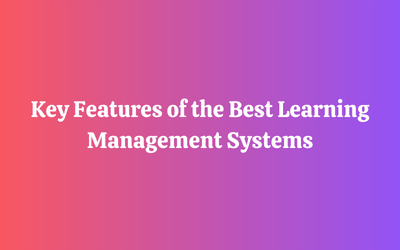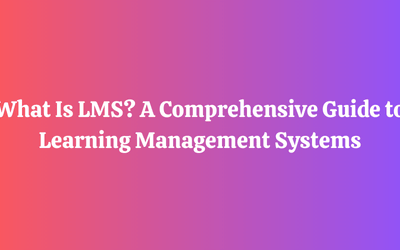Seven Stages of LMS Process
LMS (Learning Management System) refers to an application software that allows you to plan, implement and track, course material uploaded on the LMS.
Selecting a suitable LMS for the deployment of your e-Learning content might turn out to be a Herculean task.
So here is a list of seven stages that will help you in determining the right choice for your business.
Stage 1: Planning
The first stage of LMS Process is planning. In this phase, you need to find out your business requirements. It is important that you have an idea of your needs before you dive into the LMS market. One of the key decision indicators can be ROI. The higher the ROI, the better is the goal.
Stage 2: Requirements Development
The second stage involves knowing your stakeholders. People who are party to the use and purchase of LMS must be taken into consideration;Damer ugg støvler salg this may include management, investors or employees. Here you make a blueprint of your plan by issuing RFPs (Request for Proposal) to all the stakeholders.
Stage 3: Vendor Identification
LMS market is growing at a staggering growth rate of 17.5% CGPA. There are millions of vendors to look out for but among these millions, you have to list down only those few that are specific to their services because too many offerings sometimes take away the real motive. You can take free demos or hire an expert Industry Analysts or organize conferences highlighting your LMS requirements.
Stage 4: RFI
The fourth stage of LMS Process requires you to Request for Information (RFI) from the vendors zeroed in on the list. It is advised to keep choices open until the end so that if any loose end is found you can conveniently go back and reconsider your choices.
Stage 5: RFP
Next, you need to Request for Proposal (RFP) from the vendors whose ‘Service Profile’ blends with your expectations. This will further narrow down your list of potential vendors.
Stage 6: On-site Meetings
When your list comes down to only a handful of vendors you can probably set up an in-person meeting of your stakeholders with the vendors. This will help in better understanding of the details of the deliverables by various vendors plus you can negotiate. Developing Rating Schemes can assist stakeholders in making decisions.
Stage 7: Vendor Selection
The last and the most important stage in LMS Process is when you make the final call for your perfect LMS. Not only product requirements but also non-product requirements like stability, efficiency, throughput and sustainability are important factors to be kept in mind while assessing the quality of the LMS. You can check references by asking for feedbacks from the selected vendor’s previous clients.
Our News
- AI
- Animations
- Articulate
- Articulate 360
- Articulate Engage
- Articulate Live
- Articulate Presenter
- Articulate Quizmaker
- Articulate Replay
- Articulate Review
- Articulate Storyline
- Articulate Storyline 3
- Articulate Studio
- bite sized learning
- Characters
- Content Library
- Corporate Communication
- E-Learning
- e-Learning Authoring Tools
- Employee Engagement
- Game-Based Learning
- Gamification
- Gamiflexer
- Go Sales
- Healthcare
- Instructional Design
- Interactivity
- Knowledge Transfer
- L&D Trends
- Learning
- Learning & Development
- Learning Experience platform
- Learning Management System
- LMS
- LXP
- Microlearning
- mLearning
- Mobile Learning
- Nugget Learning
- Online Training
- Peek
- Performance Support
- Preso
- Quiz and Assessment Platform
- Replay 360
- Rise
- SCORM
- Screen Capture
- Software
- Storyline 360
- Studio 360
- Training Management
- Trainings
- Uncategorized





